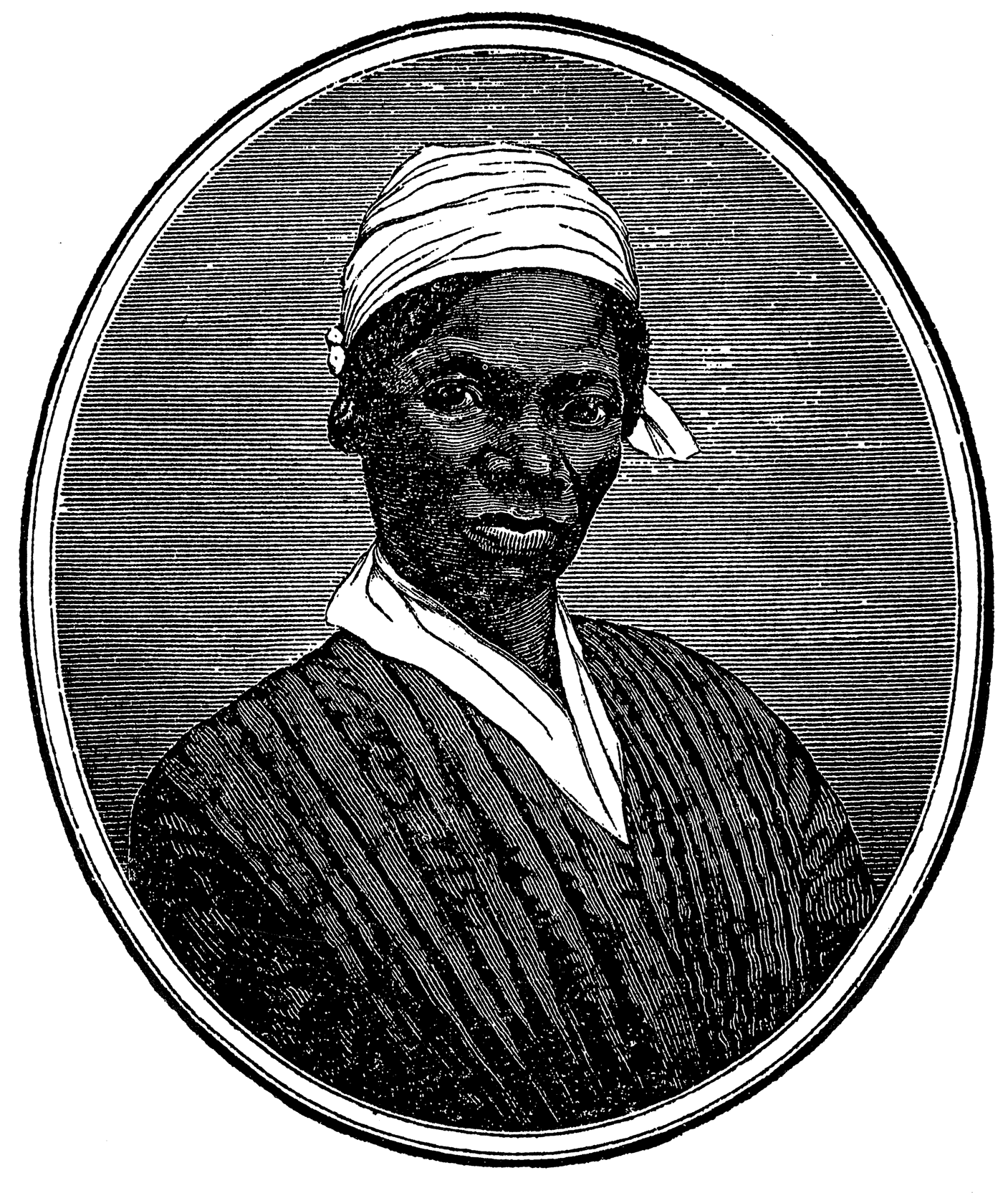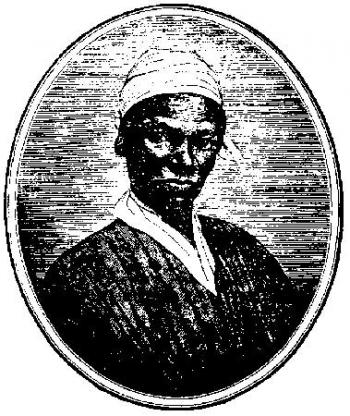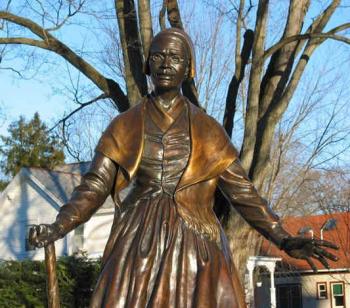Picture as a Message: Meet Sojourner Truth
ABOUT THIS DISPLAY
Images provide important evidence about people and events of long ago. This portrait will help us understand one of America’s most important leaders from the anti-slavery and women’s rights movements before the Civil War.
EXAMINE THIS PICTURE
Study the portrait of 19th Century Abolitionist, Sojourner Truth from her 1850 autobiography. (Click it to enlarge. Then click “back” to return to this page.)
- What do you see? What is she wearing? What is her expression?
- How did she want her readers to see her? Why?
A BRIEF BIOGRAPHY
In order to understand a primary source like this portrait, it is essential to read one or more secondary sources to get more information. The primary source is the evidence. The secondary source helps us understand the evidence.
Sojourner Truth was born Isabella Baumfree in 1797 as a slave in Ulster County, New York. Several times in her early years, one owner sold her to another. While a slave, she had five children. When she was 29 years old, she and an infant daughter escaped her master. Then New York State ended slavery in 1827.
In 1829, Isabella moved to New York City and got a job as a household servant. She changed her name to Sojourner Truth, and started preaching the Christian Gospel.
In 1844, Truth joined the Northampton Association of Education and Industry in present-day Florence, Massachusetts. She lived in the factory boarding house. She served as director of the laundry where she supervised workers, including white men and women. She got to know many famous abolitionists and decided to become one herself.
In 1850, she told her story in a book called, The Narrative of Sojourner Truth: A Northern Slave. Her book helped make her famous. She spoke at antislavery society and women’s rights meetings across the northern U.S., selling pictures of herself to earn money.
After the Civil War (1861-1865) when slavery ended throughout the United States, she continued to speak out for African-American rights until her death in 1883.
- Why was Abolitionism important to Sojourner Truth?
- What contribution did she make to the cause of Abolitionism?
- Why did she join the NAEI? How did her time in Northampton change her life?
- Sojourner Truth sold postcard pictures of herself with these words on them: “I Sell the Shadow to Support the Substance.” What did she mean by that?
- Look at the portrait again. How has your impression of Sojourner Truth changed since you first looked at the image?
FOR FURTHER INVESTIGATION
Florence, Massachusetts. Image courtesy of
Sojourner Truth Statue Memorial Committee.
Remembering a Leader
The web site of the Sojourner Truth Statue Memorial Committee includes a longer biography that focuses on her years in Florence. www.sojournertruthmemorial.org
Picture Books
There are several good picture book biographies on Sojourner Truth. Ask your library for any of these:
- Sojourner Truth: Ain’t I A Woman By Patricia C. Mckissack. Paperback: 192 pages. Scholastic Paperbacks; Reprint edition. (1994).
- Sojourner Truth. By Kathleen V. Kudlinski. Illustrated by Lenny Wooden. Paperback: 160 pages. Aladdin. (2003).
- Only Passing Through: The Story of Sojourner Truth. By Anne Rockwell. Illustrated by R. Gregory Christie. Hardcover: 40 pages. Knopf Books for Young Readers. (2000).
- A Picture Book of Sojourner Truth. By David A. Adler. Scholastic; 1st ed edition. (2001).
VOCABULARY
- Autobiography: A story written by a person of their own life. (Sojourner Truth told her story to another woman who wrote it down for her.)
- Primary Sources: Letters, records (such as papers from a business), pictures, and objects (such as clothes or tools) from a time in history.
- Secondary Source: Textbooks, books, magazine articles, or web sites written long after the time in history that you are looking at.





